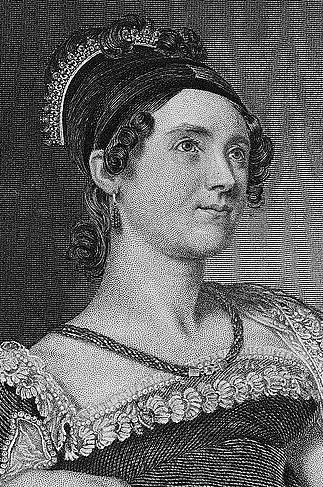 |
LOUISA Catherine Johnson ADAMS | 1775-1852 First Lady 1825-1829, wife of John Quincy Adams, 6th president of the United States, and daughter of the American consul in London. The first of only two First Ladies born outside America (the other being Melania Trump). |
| Sickly old King George has been relegated to a mere figurehead, whilst his naughty, eldest son, George, runs the country as Prince Regent. What parties we have attended! What palaces we have visited! Prince George's fantasy pavilion at Brighton was by far the most erotic. I have never been in a Turkish seraglio, but I'll wager that even the most sophisticated Pasha was out-done by Prince George. He had erotic furniture, such as comfortable chaise longues [sic] that in Paris were made for ladies to lounge in, but in Prince George's Brighton palace were for sexual intercourse. I had the privilege to watch the artist Rowlandson draw a pencil sketch of the Prince with his lady, Mrs Fitzherbert. He created good likenesses of both. |
• Entry dated 7 June 1815 in The Secret Diary of Mrs John Quincy Adams. Palm Beach: Green Dragon Books, 2015 (first edition) | |
 |
WILLIAM HARRISON AINSWORTH | 1805-1882 Novelist |
| Little did Charles the Second foresee, when halting on the evening in question with his escort on the smooth and pleasant slopes of the hill now laid out as the Queen's Park, that on the site of the obscure fishing-village towards which he gazed, would arise, some two centuries later, one of the fairest and most magnificent cities ever built on the margin of the sea, since the time when Pompeii the Beautiful was destroyed by the fiery ashes of Vesuvius. | • Ovingdean Grange: A tale of the South Downs, Book IX | |
| ANON | ageless timeless |
|
| Riding down to Brighton in a charabanc, Fifty miles an hour and we don't care a hang. We don't envy those big Rolls Royces, Singing a song at the top of our voices, Though that charabanc's a good idea, Though it shakes your liver up we don't care, The engine's full of petrol, the driver's full of beer, Driving down to Brighton in a charabanc. |
• Hit song for Whit Cunliffe c1920-21; songwriter unidentified | |
| In Brighton any man can sing anything—well, almost anything—in any language he knows. | • Unnamed 'Brighton alderman', commenting on the imminent opening of Maurice Chevalier's stage show in Brighton, following Cardiff's refusal to allow the French actor to sing there because of his flirtatious manner and suggestive French-language songs. Quoted in Time magazine, 12 January 1931. | |
 |
JANE AUSTEN | 1775-1817 Novelist |
| I assure you that I dread the idea of going to Brighton as much as you do, but I am not without hopes that something may happen to prevent it. | • Letter to her sister Cassandra, 8 January 1799 | |
| "Yes," thought Elizabeth, "that would be a delightful scheme indeed, and completely do for us at once. Good Heaven! Brighton, and a whole campful of soldiers, to us, who have been overset already by one poor regiment of militia, and the monthly balls of Meryton!" | • Pride and Prejudice, chapter 39, 1813 | |
| "If one could but go to Brighton!" observed Mrs Bennet. | • Pride and Prejudice, chapter 41, 1813 | |
| She represented to him all the improprieties of Lydia's general behaviour, the little advantage she could derive from the friendship of such a woman as Mrs. Forster, and the probability of her being yet more imprudent with such a companion at Brighton, where the temptations must be greater than at home. | • Pride and Prejudice, chapter 41, 1813 | |
| In Lydia's imagination, a visit to Brighton comprised every possibility of earthly happiness. She saw, with the creative eye of fancy, the streets of that gay bathing-place covered with officers. She saw herself the object of attention, to tens and to scores of them at present unknown. She saw all the glories of the camp—its tents stretched forth in beauteous uniformity of lines, crowded with the young and the gay, and dazzling with scarlet; and, to complete the view, she saw herself seated beneath a tent, tenderly flirting with at least six officers at once. | • Pride and Prejudice, chapter 41, 1813 | |
| "You go to Brighton. I would not trust you so near it as Eastbourne for fifty pounds!" | • Pride and Prejudice, chapter 48, 1813 | |
| "They must all go to Brighton. That is the place to get husbands." | • Pride and Prejudice, chapter 51, 1813 | |
| SAMUEL BEAZLEY, Jr | 1786-1851 Architect, novelist, playwright |
|
| Business, no such word here, sir, all pleasure, morning, a dip in the sea—rolls, butter, and hot shrimps, at ten, foot-races, wagers, novel-reading, rottendean, and the devil's dyke, till two, donkys and politics, till three, stockings and dinner, at four, walk on the Steyne, till eight, raffles, little-goes, and one-card loo, till ten, dancing all night, and the next morning a dip in the sea again. | • The Boarding House; or, Five Hours at Brighton, 2nd London edition, 1811: 19 | |
| Why yes, sir, my pursuits are varied and multifarious, as deputy master of the ceremonies, I drive the dogs off the Steyne, keep the children silent on a Sunday, and whip the naughty naked little boys off the beach. The master of ceremonies regulates the dancers, I regulate the donkys, and I dont know which is the more troublesome office of the two. | • The Boarding House; or, Five Hours at Brighton, 2nd London edition, 1811: 20 | |
| Oh, Brighton! Brighton! What a place thou art for love, liberty, and salt water. They may talk of their Margates and Ramsgates, so gay, And such places some folks may delight in; Where in summer each citizen dashes away, As long as they've time, and their money to pay, But none can compare to our Brighton! 'Tis there that our belles and our beaux always dash on, For Brighton! dear Brighton! is always the fashion; For life, oh! to Brighton no one place approaches—— 'Tis true we've no hoy—but we've plenty of coaches, So come, my fair ladies to Brighton! Then the gents and the ladies, Whatever their trade is, Whether single or married, To Brighton are carried, Then slipping, and whipping, and squalling and bawling, Each belle and each beau to Brighton they go, Oh! oh! what a place in Brighton! There full many a damsel we see with a whip, The donkey's back try to sit tight on; Every morning in salt water taking a dip, Every night in the ball-room just taking a trip; Oh! these are the pleasures of Brighton! And then there's the race course, each jockey frequents, Where the beaux lose their money as well as their sense; Where gaiety joined with equality cheers, Dukes jostle with dustmen—pickpockets with peers; Oh! these are the pleasures of Brighton! |
• The Boarding House; or, Five Hours at Brighton, 2nd London edition, 1811: 33-35 | |
 |
CUTHBERT BEDE | 1827-1889 real name: Rev Edward Bradley |
| There is certainly a fragmentary glimpse of ocean, thou mighty monster, shining among the chimney-pots; and, by standing quite close to the front of the bow-window, and looking down the long perspective of Cliff Place and across the Kings road, we can actually get a slice of a view of salt water, and occasionally see a boat or fishing-vessel gliding across the aperture. | • Mattins and Mutton's; or, The beauty of Brighton, 1866 | |
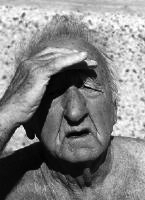 |
BRIAN BEHAN | 1926-2002 Behan lived on a connverted torpedo boat at Shoreham in the 1970s and in Brighton from 1990 until his death |
| Brighton is Dublin without priests. Brighton is tolerance by the sea. Dublin is intolerance by the sea. | • Source? | |
 |
ARNOLD BENNETT | 1867-1931 Bennett wrote Clayhanger while staying at the Royal Albion Hotel |
| The train was in Brighton, sliding over the outskirts of the town. Miss Gailey opened her apprehensive eyes. Hilda saw steep streets of houses that sprawled on the hilly mounds of the great town like ladders: reminiscent of certain streets of her native district, yet quite different, a physiognomy utterly foreign to her. This then, was Brighton. That which had been a postmark became suddenly a reality, shattering her preconceptions of it, and disappointing her she knew not why. | • Hilda Lessways {part 2 of Clayhanger), chapter 3, 1911 | |
| Her first disappointment changed slowly into expectant and hopeful curiosity. The quaint irregularities of the architecture, and the vastness of the thronged perspectives, made promises to her romantic sense. The town seemed to be endless as London. There were hotels, churches, chapels, libraries, and music-shops on every hand. The more ordinary features of main streets--the marts of jewellery, drapery, and tobacco--had an air of grandiose respectability; while the narrow alleys that curved enigmatically away between the lofty buildings of these fine thoroughfares beckoned darkly to the fancy. The multiplicity of beggars, louts, and organ-grinders was alone a proof of Brighton's success in the world; the organ-grinders, often a man and a woman yoked together, were extraordinarily English, genteel, and prosperous as they trudged in their neat, middle-class raiment through the gritty mud of the macadam, stolidly ignoring the menace of high-stepping horses and disdainful glittering wheels. Brighton was evidently a city apart. | • Hilda Lessways {part 2 of Clayhanger), chapter 3, 1911 | |
| Then the carriage rounded into King's Road, and suddenly she saw the incredible frontage of hotels, and pensions and apartments, and she saw the broad and boundless promenade alive with all its processions of pleasure, and she saw the ocean. And everything that she had seen up to that moment fell to the insignificance of a background. She understood. | • Hilda Lessways {part 2 of Clayhanger), chapter 3, 1911 | |
| 'Of course, Sarah,' he said, as the carriage shortly afterwards turned up Preston Street, where the dying wind roughly caught them, 'we aren't beginning with anything as big as all that, so you needn't shiver in your shoes. You know what my notion is'—he included Hilda in his address—'my notion is to get some experience first in a smaller house. We must pay for our experience, and my notion is to pay as little as possible. I can tell you there's quite a lot of things that have to be picked up before you've got the hang of a town like this—quite a lot.' | • Hilda Lessways {part 2 of Clayhanger), chapter 3, 1911 | |
| The magnificent woman was to be waiting for him in the lounge of the Royal York Hotel at a quarter to four. She was coming in to Brighton by the Rottingdean omnibus, which function, unless the driver changes his mind, occurs once in every two or three hours. He, being under the necessity of telephoning to London on urgent business, had hired a bicycle and ridden in. Despite the accident to this prehistoric machine, he arrived at the Royal York half a minute before the Rottingdean omnibus passed through the Old Steine and set down the magnificent woman his wife. The sight of her stepping off the omnibus really did thrill him. They entered the hotel together, and, accustomed though the Royal York is to the reception of magnificent women, Olive made a sensation therein. | • 'Mimi' in The Matador of the Five Towns and Other Stories, 1912 | |
 |
WILLIAM BLACK | 1841-1898 Black lived at 1 Paston Place, Kemp Town, from 1879 until his death |
| He found himself in this now empty and hopeless town of Brighton, that seemed given over to the low, multitudinous murmur of that wide waste of waves. | • Prince Fortunatus, chapter XVI, 1889 | |
| 'What a pleasant thing it must be for you,' she added, 'to be able to run down to Brighton for a day after a week's hard work at the theatre.' | • Prince Fortunatus, chapter XVII, 1889 | |
| Isn't it rather odd to go to a Brighton hotel for Christmas? | • Prince Fortunatus, chapter XVIII. 1889 | |
 |
BRIGHTON ROCK | 1947 film premiered 8 January 1948 |
| Human nature doesn't change—like a stick of Brighton rock you bite all the way down and still read 'BRIGHTON'! | • Slogan on the film poster | |
| Brighton today is a large, jolly, friendly seaside town in Sussex ... but in the years between the two wars there was another Brighton of dark alleyways and festering slums. From here, the poison of crime and violence and gang warfare began to spread … this is a story of that other Brighton—now happily no more. | • On-screen statement to placate the town's publicity department, following the opening credits | |
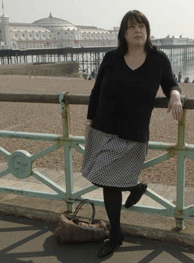 |
JULIE BURCHILL | b 1959 The journalist and writer is a long-time Brighton resident |
| What sort of chronic saddo really believes that the best days of his life were spent in the mud at Woodstock or fighting on Brighton beach? | • Sunday Times Magazine, 28 November 1993 | |
| Dr JOHN BURTON | 1696-1771 Scholar, travel writer. |
|
| Brighthelmstone ... a village on the seacoast, lying in a valley gradually sloping and yet deep. It is not indeed contemptible as to size, for it is thronged with people, though the inhabitants aremostly very needy and wretched in their mode of living, occupied in the employment of fishing, robust in their bodies, laborious, skilled in all nautical crafts, and, as it is said, terrible cheats of the custom-house officers. The village near the shore seemed to me very miserable,—many houses here and there deserted, and traces of overthrown walls.' | • Iter Sussexiense, 1752, translated by W H Blaauw, in Sussex Archaeological Collections, vol 8, 1856 | |
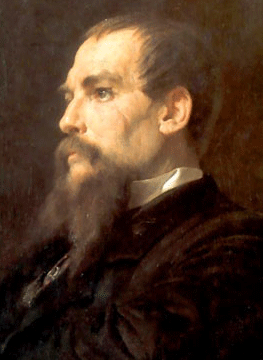 |
RICHARD BURTON | 1821-1890 Intrepid explorer |
| The place is absolutely dreadful, the food is bad, the waiters are ugly, the one good thing about Brighton is the bad morals of its visitors. | • Source? | |
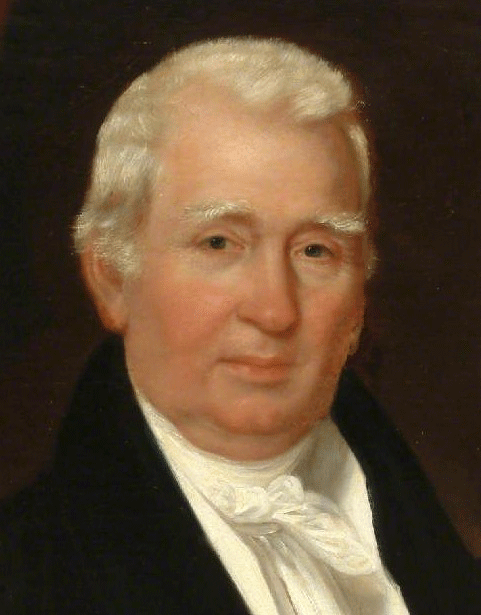 |
WILLIAM COBBETT | 1763-1835 English journalist, polemicist, farmer, MP for Oldham 1832-1835 |
| Brighton itself lies in a valley cut across at one end by the sea, and its extension, or wen, has swelled up the sides of the hills and has run some distance up the valley. The first thing you see in approaching Brighton from Lewes, is a splendid horse-barrack on one side of the road, and a heap of low, shabby, nasty houses, irregularly built, on the other side. This is always the case where there is a barrack. . . . Brighton is a very pleasant place. For a wen remarkably so. The Kremlin, the very name of which has so long been a subject of laughter all over the country, lies in the gorge of the valley, and amongst the old houses of the town. The grounds, which cannot, I think, exceed a couple or three acres, are surrounded by a wall neither lofty nor good-looking. Above this rise some trees, bad in sorts, stunted in growth, and dirty with smoke. As to the 'palace' as the Brighton newspapers call it, the apartments appear to be all upon the ground floor; and, when you see the thing from a distance, you think you see a parcel of cradle-spits , of various dimensions, sticking up out of the mouths of so many enormous squat decanters. Take a square box, the sides of which are three feet and a half, and the height a foot and a half. Take a large Norfolk-turnip, cut off the green of the leaves, leave the stalks nine inches long, tie these round with a string three inches from the top, and put the turnip on the middle of the top of the box. Then take four turnips of half the size, treat them in the same way, and put them on the corners of the box. Then take a considerable number of bulbs of the crown-imperial, the narcissus, the hyacinth, the tulip, the crocus, and others; let the leaves of each have sprouted to about an inch, more or less according to the size of the bulb; put all these, pretty promiscuously, but pretty thickly, on the top of the box. Then stand off and look at your architecture. There! That's "a Kremlin !" Only you must cut some church-looking windows in the sides of the box. As to what you ought to put into the box, that is a subject far above my cut. Brighton is naturally a place of resort for expectants, and a shifty ugly-looking swarm is, of course, assembled here. Some of the fellows, who had endeavoured to disturb our harmony at the dinner at Lewes, were parading, amongst this swarm, on the cliff. You may always know them by their lank jaws, the stiffeners round their necks, their hidden or no shirts, their stays, their false shoulders, hips and haunches, their half-whiskers, and by their skins, colour of veal kidney-suet, warmed a little, and then powdered with dirty dust. These vermin excepted, the people at Brighton make a very fine figure. The trades-people are very nice in all their concerns. The houses are excellent, built chiefly with a blue or purple brick; and bow-windows appear to be the general taste. I can easily believe this to be a very healthy place : the open downs on the one side and the open sea on the other. No inlet, cove, or river; and, of course, no swamps. I have spent this evening very pleasantly in a company of reformers, who, though plain tradesmen and mechanics, know I am quite satisfied more about the questions that agitate the country than any equal number of lords. |
• Sussex Journal, 10 January 1822 | |
 |
NOEL COWARD | 1899-1973 English playwright, actor, songwriter |
| Ah, dear Brighton—piers, queers and racketeers. | • Source? | |
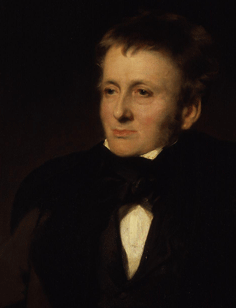 |
THOMAS DE QUINCEY | 1785-1859 English essayist. |
| At Brighton, I think it was, that a Society was formed for the Suppression of Virtue. | • 'On Murder Considered as One of the Fine Arts' in Blackwood's Magazine, 1827 | |
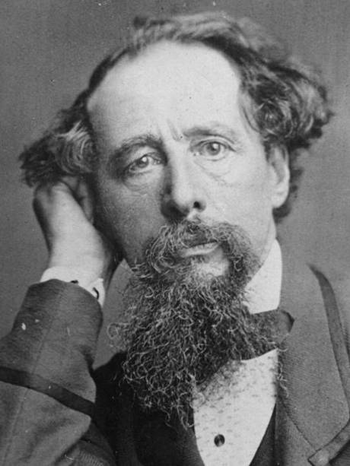 |
CHARLES DICKENS | 1812-1870 Dickens first visited Brighton in 1837, staying at the Old Ship, and returned many times, usually residing at the Bedford Hotel, where he wrote much of Dombey and Son. He could draw an audience of 1,0000 to the upper room at the Town Hall. |
| 'Brighton?' Mr Cymon Tuggs opposed an insurmountable objection. All the coaches had been upset, in turn, within the last three weeks; each coach had averaged two passengers killed, and six wounded; and, in every case, the newspapers had distinctly understood that 'no blame whatever was attributable to the coachman.' | • Sketches by Boz, 1833-36 | |
| `Brighton has proved very beneficial, Sir,' returned Mrs. Pipchin. `Very beneficial, indeed.' | • Dombey and Son, chapter 11. 1846-48 | |
| There was something queer, too, about Mrs Blimber's head at dinner-time, as if she had screwed her hair up too tight; and though Miss Blimber showed a graceful bunch of plaited hair on each temple, she seemed to have her own little curls in paper underneath, and in a play-bill too: for Paul read `Theatre Royal' over one of her sparkling spectacles, and `Brighton' over the other. | • Dombey and Son, chapter 14. 1846-48 | |
| `I have learnt from your mother, Mrs. Dombey,' said Mr. Dombey, with magisterial importance, `what no doubt you know, namely, that Brighton is recommended for her health.' | • Dombey and Son, chapter 40. 1846-48 | |
| All is going on as it was wont. The waves are hoarse with repetition of their mystery; the dust lies piled upon the shore; the sea-birds soar and hover; the winds and clouds go forth upon their trackless flight; the white arms beckon, in the moonlight to the invisible country far away. | • Dombey and Son, chapter 41. 1846-48 | |
| [In] Reading times I never under any circumstances whatever go to a friend's house, I always live at an Hotel with Mr. Dolby (my manager) and the workmen who travel with me are never out of call. We have consequently brought the business part to chronometer exactness.. And consider what a nuisance I should be to my friends, if I had not taken this virtuous resolution. For example, I am coming to Brighton from Manchester for a night—next morning leave for London—and next morning again come back to Brighton—and next morning again go off to Manchester; all these departures at untimely hours and with big boxes and all sorts of similar impediments. |
• Letter from Adelphi Hotel, Liverpool to H P Smith, 11 October 1868. Dickens made his last public appearances in Brighton at the Grand Concert Hall in West Street on 19 and 22 October, 2 and 7 November 1868 |
|
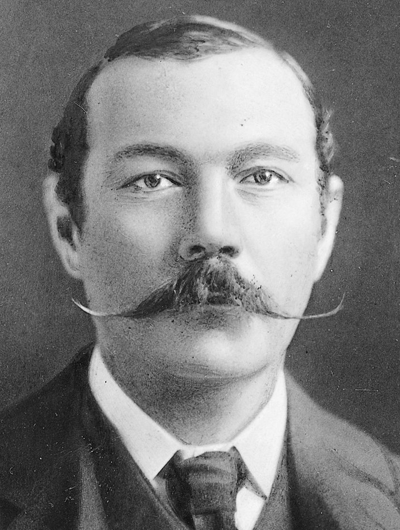 |
Sir ARTHUR CONAN DOYLE | 1859-1930 Writer |
| So as we took the curve of the road the little village vanished, and there in the dip of the Downs, past the spires of Patcham and of Preston, lay the broad blue sea and the grey houses of Brighton, with the strange Eastern domes and minarets of the Prince's Pavilion shooting out from the centre of it. To every traveller it was a sight of beauty, but to me it was the world—the great wide free world—and my heart thrilled and fluttered as the young bird's may when it first hears the whirr of its own flight, and skims along with the blue heaven above it and the green fields beneath. |
• Rodney Stone, chapter VI, 1896. | |
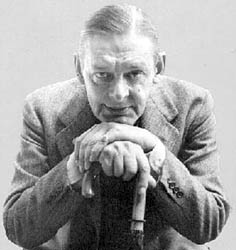 |
T S ELIOT | 1888-1965 American-born poet. |
| Unreal City Under the brown fog of a winter noon Mr Eugenidies, the Smyrna merchant Unshaven, with a pocket full of currants C.i.f. London: documents at sight, Asked me in demotic French To luncheon at the Cannon Street Hotel Followed by a weekend at the Metropole. |
• The Waste Land. III. The Fire Sermon, 1922. The Brighton Metropole was renowned for illicit sexual dalliance (dirty weekends). | |
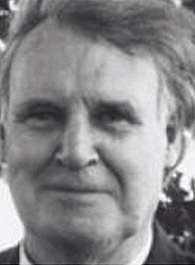 |
GAVIN EWART | 1916-1995 Poet. FRSL |
| Lovely in the winter sunshine lies the Haslemere Hotel, Near the Homeleigh and the Sussex, home of ex-King Manoel. Lager in the West Pier Tavern, cocktails at the Metropole, Who can spot Lord Alfred Douglas—not the gross and coarse of soul! . . . We remember that Pavilion, Moorish with chinoiserie, And the Ice Rink and the High Street, Fuller's layer-cake for tea! Still we see those sugar-daddies flashing by in terraplanes, On the Hove Lawns lonely colonels fight again their last campaigns; Wickedly we drink our coffee in Sherry's where the bad girls go, From the balcony we watch them bathed in purple light below. . . . O voluptuous! O ecstatic! O that convalescent air! In the sun those terraced houses, wonderful wonderful Regency Square! There among the winds of winter we were gay in spite of gales, Still a memory we cherish though the recollection pales. | • 'John Betjeman's Brighton' in Selected Poems 1933-1993, 1938 | |
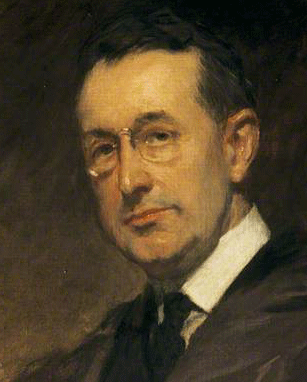 |
Sir BANISTER Flight FLETCHER | 1866-1953 Architect and architectural historian, author of the standard work A History of Architecture |
It would certainly seem that with improved methods of communication there will be a tendency to live out of towns and work in them, for those at least who are able. It is now considered somewhat a feat to live at Brighton with one's business in London; but we may take it that such a thing will be quite common, and that by the middle of the century a man may possibly go much longer distances. |
• 'Architecture of the Twentieth Century' in The Building News, 22 February 1901: 256 | |
 |
ELIZABETH FRY | 1780-1845 English Quaker social reformer, notably of prisons, founder of the Brighton District Society |
| During her stay at Brighton, Mrs Fry was often distressed by the multitude of applicants for relief. This was not confined to beggars by profession, who infested the streets, following carriages and foot passengers with clamorous importunity, but extended to the resident poor, many of whom had obtained the habit of asking assistance to the houses, not only of the inhabitants, but the visitors to the place. It was difficult for the former, but almost impossible for the latter, to discover the true state of the case, whether their poverty was real or assumed; and if real, whether caused by improvidence and idleness on their own part, or whether the result of misfortune and providential infliction. | • Elizabeth Gurney Fry and Katharine Fry (editors): Memoir of the Life of Elizabeth Fry with extracts from here journal and letters, volume 1, 1848, pp497. | |
| Brighton appeared exactly the field for working a District Visiting Society. There was no lack of benevolent feeling, and abounding affluence to be found there; but the former were frequently misdirected amd the latter misapplied. | • Elizabeth Gurney Fry and Katharine Fry (editors): Memoir of the Life of Elizabeth Fry with extracts from here journal and letters, volume 1, 1848, pp500. | |
 |
PATRICK HAMILTON | 1904-1962 Born in Hassocks, the writer spent part of his early years at 12 First Avenue, Hove |
| While Brighton slept—North Street, West Street, East Street, Western Road, Preston Street, Hove, the hotels, the shops, the restaurants, the movies, the baths, the booths, the churches, the Market, the Post Office, the pubs, the antiques, the second-hand books—slept and gleamed and climbed up from the sea under the dark blue dawn, the enormous gloomy man walked along the front, hardly visible in the darkness, seemingly the only wayfarer, the only one awake. And he looked out at the sea and wondered what he had to do. When he remembered he was about opposite the Grand. He remembered without any trouble, any strain. He had to kill Netta Longdon. | • Hangover Square: A tale of darkest Earls Court, 1941. | |
 |
HENRY JAMES | 1843-1916 American-born novelist, long resident in Rye, Sussex |
| The season was, in local parlance, 'on', the elements were assembled; the big windy hotel, the draughty social hall, swarmed with 'types', in Charlotte's constant phrase, and resounded with a din in which the wild music of gilded and befrogged bands, Croatian, Dalmatian, Carpathian, violently exotic and nostalgic, was distinguished as struggling against the perpetual popping of corks. | • Description of Brighton in The Golden Bowl, 1904 | |
| They walked away—walked together, in the waning afternoon, back to the breezy sea and the bustling front, back to the rumble and the flutter and the shining shops that sharpened the grin of solicitation on the mask of night. | • Description of Brighton in The Golden Bowl, 1904 | |
| Below the great consolidated cliff, well on to where the city of stucco sat most architecturally perched, with the rumbling beach and the rising tide and the freshening stars in front and above, the safe sense of the whole place yet prevailed in lamps and seats and flagged walks, hovering also overhead in the close neighbourhood of a great replete community about to assist anew at the removal of dish-covers. | • Description of Brighton in The Golden Bowl, 1904 | |
 |
Lord NEIL KINNOCK | b 1942 British MP |
| [like Brighton Pier] All right as far as it goes but inadequate for getting to France. | • Referring to the Conservative Party European policy | |
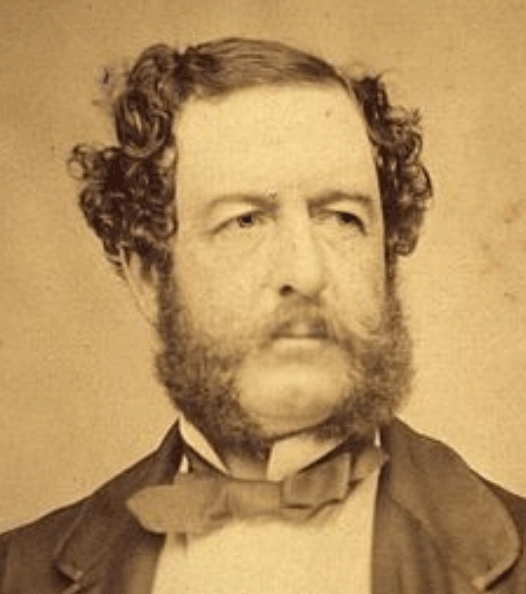 |
Sir RICHARD LEVINGE bt | 1811-1884 Irish landowner, MP for Westmeath 1857-1865, |
| Brighton water is not famous for tea-making. | A Day with the Brookside Harriers at Brighton, 1858, p5 | |
| But here again, to say a good word for old Brighton—in no town I know of do the troittoirs, at any rate, dry up so soon, being generally made of brick, and kept scruputlously clean; and if the great luminary will but shine upon them, the most delicate of ladies, in the very thinnest possible of chaussures, and in the most splendid of dresses, may walk along the Brighton trottoirs without the chance of either being abîmé-d. | A Day with the Brookside Harriers at Brighton, 1858, p7 | |
 |
PATRICK MAGEE | b 1941 Known as the 'Brighton bomber' |
| After Brighton, anything was possible and the British for the first time began to look very differently at us. | • Referring to the 1984 IRA bombing of the Grand Hotel, August 2000 | |
 |
Lady SYDNEY MORGAN | 1783-1859 Born Sydney Owenson, the Irish writer was little over four feet tall because of curvature of the spine. She moved in the circles around the Prince Regent |
| Architecture is the printing-press of all ages, and gives a history of the state of the society in which it was erected, from the cromlech of the Druids to those toy-shops of royal bad taste—Carlton House and the Brighton Pavilion. The Tower and Westminster Abbey are glorious pages in the history of time, and tell the story of an iron despotism, and the cowardice of unlimited power. | • Source? | |
 |
Sir THOMAS CHARLES and Lady MORGAN | 1783-1843 For Lady Morgan see above |
| Such was the state of things, when the fall of Napoleon gave peace to Europe. The royal Amphitryon of England [the Prince Regent] had, indeed, possessed great views for the elevation of the national kitchen; but he wanted the supplies. He had imported the immortal Careme, and had implored his assistance in the revival of the art. ... Careme came!—he came, he saw; but he could not conquer. The ponderous batterie of Brighton (that Woolwich of the kitchen) shone out, in its vast armament of polished coppers, in vain! Troops of chuckle-headed little English aides, plump and platter-faced, as the Cupidons bouffis of the days of Louis the Fourteenth, were no aids to him; and hecatombs of constitutional British beef, and oceans of passive obedient fish, which came to be caught within view of the kiosks of the Pavilion, invoked the genius of the enlightened foreigner to no purpose. To use his own expresion, he was 'souffoqué'. | • 'Le Cordon Bleu' in The Book Without a Name vol 1, 1841 | |
 |
LAURENCE OLIVIER | 1907-1989 The foremost English actor of the 20th century made his stage debut at the Hippodrome in Middle Street in 1925. From 1968 to 1979 he lived at 4-5 Royal Crescent. |
| There is a phrase: 'the sweet smell of success'. And I can only tell you, I've had two experiences of that and it just smells like Brighton and oyster bars and things like that. | • Of his stage production of Richard III, 1944. | |
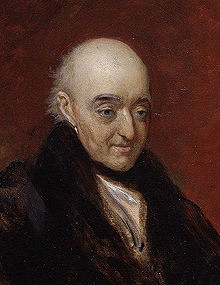 |
SAMUEL ROGERS | 1763-1855 |
| Brighton is still very gay and full of balls. | • January 1829 | |
 |
BRIAN SETZER, LEON DRUCKER* & JAMES McDONNELL** | b1959, 1961, 1961 aka *Lee Rocker, **Slim Jim Phantom |
| There's the Rockabilly Cats With their pomps real high, Wearin' black drape coats, All real gone guys. Cool skinheads with their rolled up jeans, Lookin' real rough and mighty mean There's a rumble in Brighton tonight. Ringside seats for the neighborhood fight. There ain't a damn thing that the cops can do. There's a rumble in Brighton tonight The sew fishhooks under their collars, They got razors in their shoes. I said, 'Go cat, go'—their battle cry. World War Three is starting to brew. ... Rumble in Brighton tonight. Rumble on the beach tonight. Rumble in Brighton tonight. Rumble on the beach tonight. There ain't a damn thing that the cops can do. Line right up for the sideline view. Ringside seats for the neighborhood fight. There's a rumble in Brighton tonight. |
• 'Rumble in Brighton' by The Stray Cats, 1981 © Sony/ATV Music Publishing LLC |
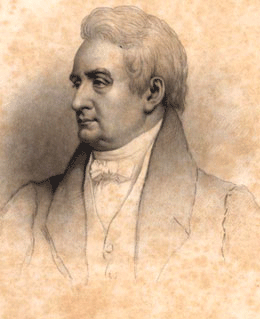 |
Rev SYDNEY SMITH | 1771-1845; English essayist |
| It looked for all the world as if the Dome of St Paul's had came down to Brighton and pupped. | • Of the Royal Pavilion. Source? | |
 |
THE SPECTATOR | Founded 1828 English political journa |
| The Royal party left Brighton for London on Monday morning. The Brighton people are loud in their expressions of regret; and, mingled with some little selfishness, we do not doubt that there is not a small portion of honest sentiment. King William and Queen Adelaide are more at home in the country than in town; and, like all characters in which the natural predominates, they are the more apt to generate admiration the more closely they are viewed. Here [in London] we see only a King and Queen—we are conscious only of the presence of royalty; in Brighton it is the humanity of the picture that comes predominantly out. | • The Spectator, 26 February 1831:10 | |
 |
WILLIAM MAKEPEACE THACKERAY | 1811-1863 English novelist |
| A comfortable inn in Brighton is better than a spunging-house in Chancery Lane. | • Vanity Fair, chapter 25, 1848 | |
| "How calm the sea is, and how clear everything. I declare I can almost see the coast of France!" and her bright green eyes streamed out, and shot into the night as if they could see through it. | • Vanity Fair, chapter 25, 1848 | |
| What is a lodging-house at Brighton but an uncertain maintenance? The mariner on the sea before those cliffs is no more sure of wind and wave, or of fish to his laborious net, than the Brighton house-owner (bred in affluence she may have been, and used to unremitting plenty) to the support of the casual travellers who visit the city. On one day they come in shoals, it is true, but where are they on the next? | • The Newcomes, chapter IX, 1855 | |
| In Steyne Gardens, Brighton, the lodging-houses are among the most frequented in that city of lodging-houses. These mansions have bow-windows in front, bulging out with gentle prominences, and ornamented with neat verandahs, from which you can behold the tide of humankind as it flows up and down the Steyne, and that blue ocean over which Britannia is said to rule, stretching brightly away eastward and westward. The chain-pier, as every body knows, runs intrepidly into the sea, which sometimes, in fine weather, bathes its feet with laughing wavelets, and anon, on stormy days, dashes over its sides with roaring foam. Here, for the sum of twopence, you can go out to sea and pace this vast deck without need of a steward with a basin. You can watch the sun setting in splendour over Worthing, or illuminating with its rising glories the ups and downs of Rottingdean. You see the citizen with his family inveigled into the shallops of the mercenary native mariner, and fancy that the motion cannot be pleasant; and how the hirer of the boat, otium et oppidi laudat rura sui, haply sighs for ease, and prefers Richmond or Hampstead. You behold a hundred bathing-machines put to sea; and your naughty fancy depicts the beauties splashing under their white awnings. | • The Newcomes, chapter IX, 1855 | |
| Along the rippled sands (stay, are they rippled sands or shingly beach?) the prawn-boy seeks the delicious material of your breakfast. Breakfast-meal in London almost unknown, greedily devoured in Brighton! In yon vessels now nearing the shore the sleepless mariner has ventured forth to seize the delicate whiting, the greedy and foolish mackerel, and the homely sole. Hark to the twanging horn! it is the early coach going out to London. Your eye follows it, and rests on the pinnacles built by the beloved GEORGE. See the worn-out London roué pacing the pier, inhaling the sea air, and casting furtive glances under the bonnets of the pretty girls who trot here before lessons! Mark the bilious lawyer, escaped for a day from Pump Court, and sniffing the fresh breezes before he goes back to breakfast and a bag full of briefs at the Albion! See that pretty string of prattling schoolgirls, from the chubby-cheeked, flaxen-headed little maiden just toddling by the side of the second teacher, to the arch damsel of fifteen, giggling and conscious of her beauty, whom Miss Griffin, the stern head-governess, awfully reproves! See Tomkins with a telescope and marine jacket; young Nathan and young Abrams, already bedizened in jewellery, and rivalling the sun in oriental splendour; yonder poor invalid crawling along in her chair; yonder jolly fat lady examining the Brighton pebbles (I actually once saw a lady buy one), and her children wondering at the sticking-plaister portraits with gold hair, and gold stocks, and prodigious high-heeled boots, miracles of art, and cheap at seven-and-sixpence! | • The Newcomes, chapter IX, 1855 | |
| It is the fashion to run down George IV, but what myriads of Londoners ought to thank him for inventing Brighton! One of the best of physicians our city has ever known, is kind, cheerful, merry Doctor Brighton. Hail, thou purveyor of shrimps and honest prescriber of Southdown mutton! There is no mutton so good as Brighton mutton; no flys so pleasant as Brighton flys; nor any cliff so pleasant to ride on; no shops so beautiful to look at as the Brighton gimcrack shops, and the fruit shops, and the market. | • The Newcomes, chapter IX, 1855 | |
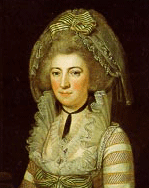 |
HESTER THRALE | 1741-1821 Hester Lynch Thrale Piozzi had a seaside home with her husband Henry, a London brewer, at 78 West Street |
| He loved the sight of fine forest trees, however, and detested Brighthelmstone Downs, 'because it was a country so truly desolate,' he said, 'that if one had a mind to hang one's self for desperation at being obliged to live there, it would be difficult to find a tree on which to fasten the rope.' | • Anecdotes of the late Samuel Johnson, 1786 | |
| JULIA Augusta TILT | 1821-1871 Brighton-born writer and poet lived in Bedford Street in her early years |
|
| Lines suggested on hearing of the sale of the Pavilion, at Brighton. Oh, Royal domes, oh, fairy spires, Must thou be levelled low, Can nothing save thy sacred towers, Or shield them from the blow? Can we forget the days gone by, When Royal George first came, And raised thee from obscurity Unto a princely fame? . . . And though thy king has passed away, And royalty has fled, Oh, let his palace still remain, In memory of the dead. Nor should his brother be forgot, Our brave and sailor king, Who made thy walls with merriment, Through all its arches ring. Then let it be retained for one, Whom we will hope and pray May live to prove a Prince of Wales As fondly loved as they. |
• Poems and Ballads, 1847 of which The Literary Gazette wrote: 'Our dear young ladies, let the public be as apathetic as it likes about poetry, will write poems, and, what is more. publish them. We are loath to say they do not always seem worthy of the distinction, but as they are rather proofs of amiable weakness than of aught to provoke censure, we are generally included to pass them over in silence.' The volume also contains 'Lines written on the night of December the second, on hearing of the death of Lady Emma Pennant'. In fact, this is an early reference to the possibility of a sale, which did not happen until 1850. |
|
 |
PETE TOWNSHEND | b1945 Musician, songwriter |
| Ever since I was a young boy, I've played the silver ball. From Soho down to Brighton, I must have played them all. |
• : 'Pinball Wizard' from Tommy, 1975 | |
 |
LYNNE TRUSS | b 1955 Writer, journalist |
| With casual sex, bodies in trunks and two piers, it's no wonder Brighton is home to the likes of Fat Boy Slim, Julie Burchill and Steve Coogan. | • 'Where Eubank comes through walls' in New Statesman, 1996 | |
| This highly unrealistic reassurance prefacing Brighton Rock [qv] was the inspiration for the comedy series Inspector Steine. ... I wanted to write about a celebrity police inspector in the 1950s who innocently (and touchingly) believed precisely what he had been told at the movies. | • lynnetruss.com, 2006 | |
 |
KEITH WATERHOUSE | 1929-2009 The novelist and columnist lived for some years in Embassy Court on King's Road |
| Brighton has the air of a town that is perpetually helping the police with their inquiries. | • Source? | |
| The great thing about Brighton is that you can buy your lover a pair of knickers on Victoria Station and in less than two hours have them off again in the Grand Hotel. | • Source? |
